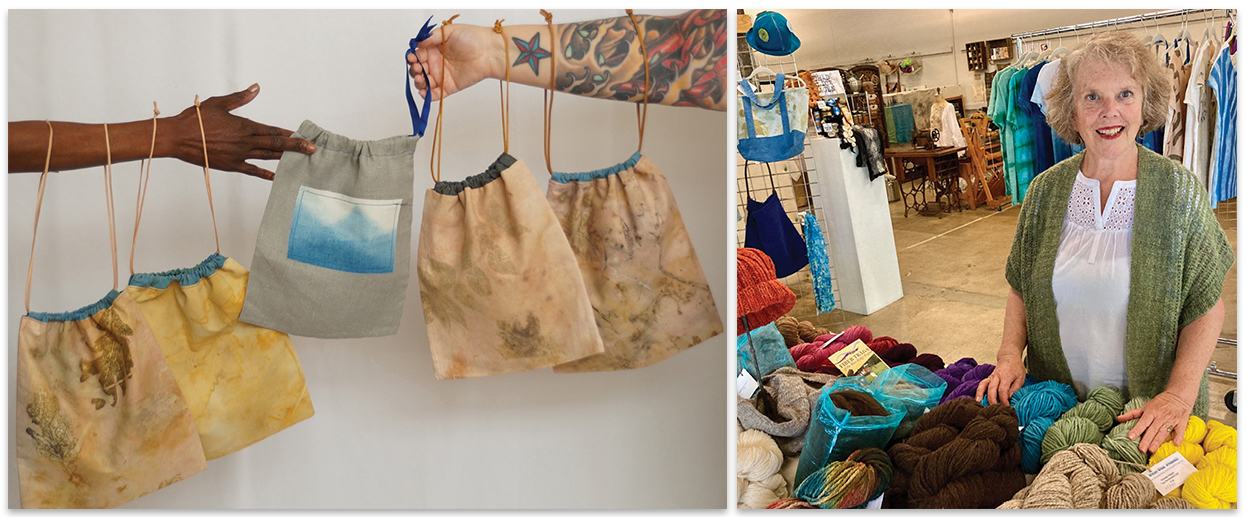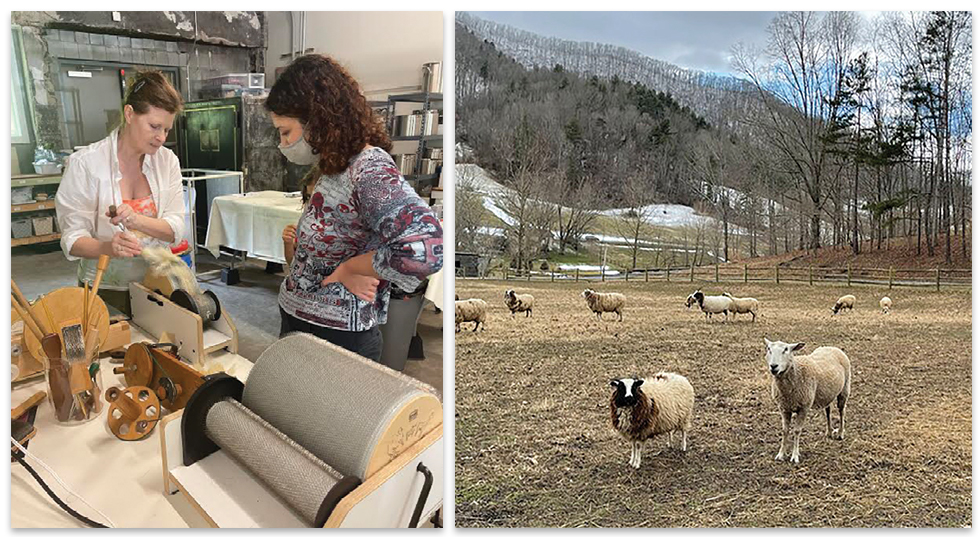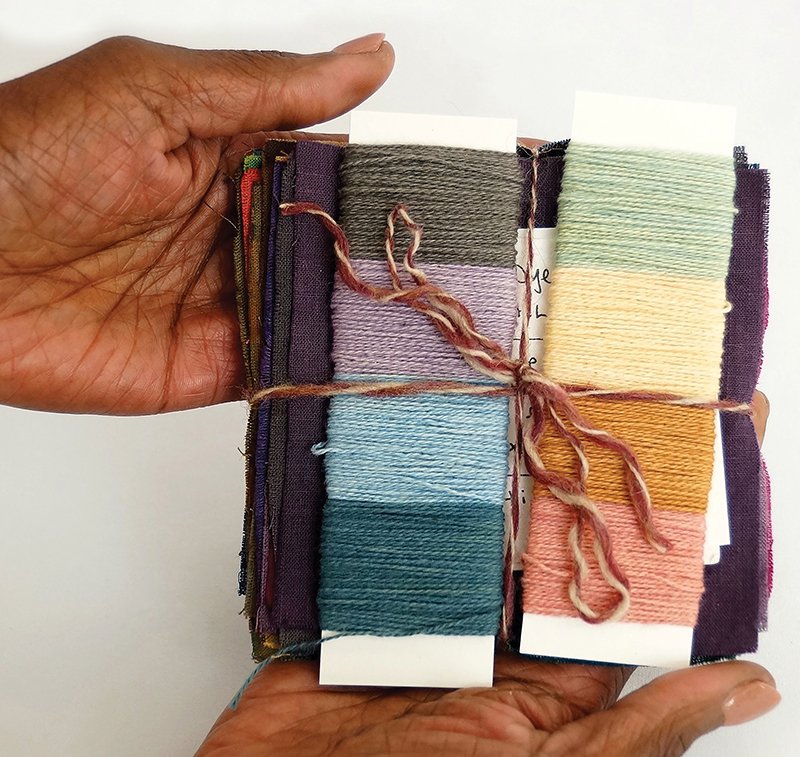Whole Cloth
Whole Cloth: In a fresh River Arts District location, Asheville’s Local Cloth weaves a new textile tradition
Local Cloth promotes not just the fiber arts but also the benefits of regional production.
A group of women in comfy shoes and white aprons cluster around a row of water-filled plastic trays on a Depot Street workshop table. In front of them, instructor Pam Granger Gale summons swirls of jewel-toned designs on the surface of the water with a comb-like tool, pressing a square of cloth into the design to transfer the image, then hanging it to dry on a clothesline behind the River Arts District studio. This marbling workshop is just one of nearly 30 offered at Local Cloth over the course of the summer 2021, in arts ranging from felting to dying to bookbinding.
Now in its 10th year, the Asheville-based nonprofit—dedicated to championing nearly every aspect of the local fiber chain—is experiencing a renaissance in its new Depot Street location, with a retail space and studios that invite passersby to discover the jaw-dropping diversity of artists and producers working with fiber in the regional “fibershed.”

Judi Jetson launched Local Cloth 10 years ago and says she’s thrilled to have the new Depot Street space to share skills, fiber art and materials, and a growing connectivity to the local “fibershed.”
Local Cloth founder Judi Jetson came up with the idea for the organization while working in economic development at Handmade in America, the seminal regional nonprofit that helped advance the local craft scene for two decades before it dissolved in 2015. In that role, Jetson encountered independent artists, wool-producing farmers, clothing designers, and hobbyists all involved in a textile sector radically more independent and sustainable than the mill-centered economy of the region’s past. A natural networker, she brought them together, both to offer support and to highlight just these entrepreneurs’ economic impact. In recent years, the ranks of those involved in the fiber economy in the 100-mile-radius fibershed has swelled to 462 fiber animal farms and more than 400 fiber art professionals.
A fashion show, a “fiber trail” guide to regional producers, a yarn bombing here and there—Local Cloth takes an expansive, creative, and engaging approach to building awareness of those working with fiber regionally. The new location extends that approach even further with Local Cloth’s first-ever retail space, showcasing everything from locally spun and dyed skeins of wool to clothing to hand-bound journals. Farmers are always included in the equation, with a Featured Farm each month.

Curious visitors can watch artists working in their studio spaces, spinning wool into yarn or dipping cloth in vats of natural dye in Local Cloth’s dye lab. Then there is the dizzying array of new crafts and skills to learn in the classroom space. While classes and open studios are nothing new in the River Arts District, there’s a strong spirit of collaboration here. “It’s the kind of place where I’ll teach you something and you teach me something,” says Jetson. And the organization does more than give lip service to the concept of community—artists and producers buy supplies from and trade with each other.
Less than a mile from where generations of workers once spun plaid and denim fabric on giant machines, these creatives are re-envisioning the local textile tradition, pulling diverse threads together into the fabric of a community that’s durable and decidedly handmade.
Local Cloth
408 Depot St., Asheville
(828) 774-5134
localcloth.org
